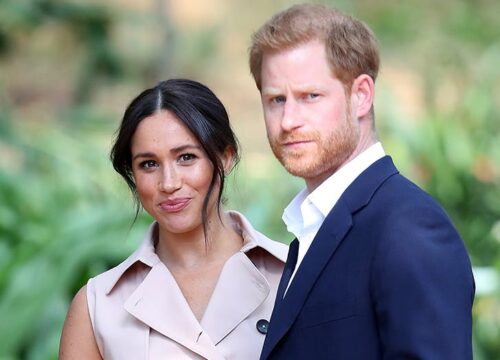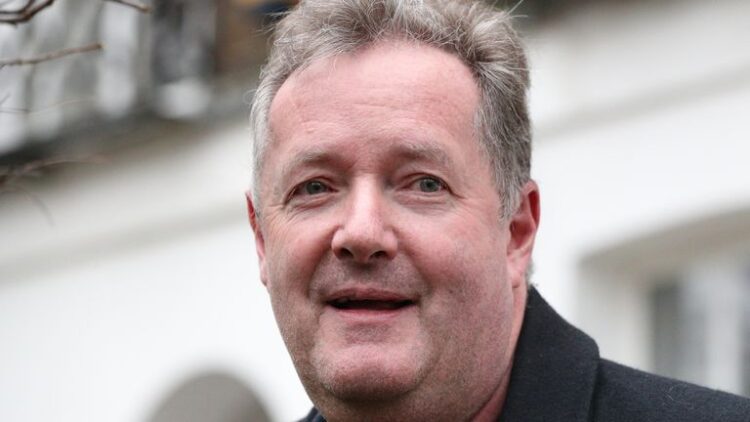Ofcom today announced its ruling, much to the pleasure of Morgan’ supporters and the displeasure of Meghan’s. The ruling read:
“Consistent with freedom of expression, Mr Morgan was entitled to say he disbelieved the Duke and Duchess of Sussex’s allegations and to hold and express strong views that rigorously challenged their account.
“The [Ofcom broadcasting] code allows for individuals to express strongly held and robustly argued views, including those that are potentially harmful or highly offensive, and for broadcasters to include these in their programming.
“The restriction of such views would, in our view, be an unwarranted and chilling restriction on freedom of expression both of the broadcaster and the
However, the regulator said it had concerns over his comments about suicide and mental health.
“We were particularly concerned about Mr Morgan’s approach to such an important and serious issue and his apparent disregard for the seriousness of anyone expressing suicidal thoughts,” it said.
Ofcom “would have been seriously concerned” if he had not been challenged by co-hosts Susanna Reid and Chris Ship, which provided “adequate protection for viewers”, it added.
The regulatory body added that its decision was ‘finely balanced’, but that ITV had ‘provided adequate protection to viewers from potentially harmful and highly offensive statements about mental health and suicide’.
The ruling has led to Piers Morgan writing a long celebratory speech on his Daily Mail article re-iterating his claim not to have believed a word of Meghan Markle’s testimony.

The article he says that not a shred of evidence has been provided to support her claims of racism or mental health.
He writes: “More pertinently, none of the couple’s most sensational and damaging statements about racism and mental health have yet been supported by a shred of evidence amid furious denials from the Royal Family.
Morgan revisited the claims made by Prince Harry and Meghan Markle, mocking her claims as he hailed a decision he said was a victory for free speech. He said ‘it was preposterous that I lost my job because I didn’t believe a demonstrable liar’.
‘We now live in a woke-ravaged era where it’s become a punishable offence to say what you really think about almost anything for fear that someone, somewhere, will be offended.
This insidious ‘cancel culture’ as it’s been termed represents the most serious threat to democracy in my lifetime’.
Members of The Eye of Media.Com today analysed and debated the ruling among other hot topics including the controversies surrounding vaccinations for school pupils.
The complaints against Piers Morgan had been discussed with Ofcom officials on a few occasions in the last few months to find out what factors would be taken into account in their assessment , and to air various views for consideration.
Today, opinions were split in this publication , with some agreeing with the ruling, but others adamant that it was lacking in sound judgement to some degree.
The fact the ruling left out the limitations of freedom of expression was raised by The Editor Of this publication, Gabriel Princewill.
He said: ‘ In addition to Ofcom’s ruling that Piers Morgan has a rif to freedom of speech, Ofcom did express concern for Morgan’s approach to a serious issue as mental health and apparent disregard for someone who expressed feelings of suicide.
That concern remains valid, and actually reflects the clash of rights clearly expounded in Article 10 of the Human Rights Act which affords the right of freedom of expression to every citizen. It is not an absolute right and as stated in article 10:
“the exercise of these freedoms, since it carries with it duties and responsibilities, may be subject to such formalities, conditions, restrictions or penalties as are prescribed by law and are necessary in a democratic society, in the interests of national security, territorial integrity or public safety, for the prevention of disorder or crime, for the protection of health or morals, for the protection of the reputation or rights of others, for preventing the disclosure of information received in confidence, or for maintaining the authority and impartiality of the judiciary”.
Anybody who thinks any of the rights enshrined in he Human Rights Act exists independently of he others, does not understand the Human Rights Act at all. When ever competing rights arise, they must be weighed up in terms of importance, context and purpose.
Piers Morgan had every right to criticise Meghan Markle’s account, but should have stayed a mile away from openly disputing her claims of mental health issues ,unless he could substantively refute those particular claims”.
Head Of this publication’s Quality Control, Victoria Mckeown said: ” I think the ruling was fair. Piers Morgan is entitled to express his views to not believe Meghan Markle. It is for Meghan to come back at him and engage him in debate or criticise his decision to disbelieve her. If he is genuine in not believing her and his views were not motivated by malice, then that’s fair enough.
If his views were not motivated by malice then its unethical, but it doesn’t deny him the right to express his honest opinion. Piers Morgan has today called her a liar. If she is confident she hasn’t lied at all, she can sue him. Meghan Markle is a privileged woman of 40 yeas of age. Let her sue him for defamation if she disputes his strong and potentially inflammatory allegations’, she said.
Context
The conclusion that Piers Morgan’s right to freedom of speech is right in principle, but debatable in the full context in which the ruling was delivered.
Prince Harry and Meghan made a whole range of serious complaints about their experiences in the royal family , all of which Piers Morgan dismissed.
One particular allegation she made was that members of ‘the firm’ were perpetuating falsehoods about them to the press, and that the palace was hosting parties for the tabloids.
The fact Piers Morgan was grudging Meghan Markle for ghosting her is widely believed to have influenced his critical stance against Meghan Markle, though the Duchess Of Sussex has many critics of her own.
The broader issue is not whether Piers Morgan has the right to freedom of speech, but whether that right outweighs Meghan Markle’s right to express her genuinely held views, if the views were genuine. It is whether it was acceptable f0r a television journalist to casually and arrogantly dismiss her claims as he did.
” Arrogant people also have rights to freedom of speech’, Victoria Mckeown insists.
Mental health analyst, Deon Vernhoven: ” Everyone has he right to freedom of speech, but that does not for example permit you to be anti-semitic or incite racial hatred. In the same way, it does not entitle one to wrongly undermine a person’s experience of mental health so recklessly.
‘Ofcom’s ruling is not a complete vindication of Piers Morgan’s behaviour, because it is critical of Piers Morgan’s insensitivity to Meghan Markle’s claim of Mental Health issues. However, the criticism was too soft and did not go far enough to adequately reflect the seriousness of Piers Morgan’s reckless attitude as a journalist expected to maintain high journalistic standards”, she said.
At the end of Piers Morgan’s article, he asks whether he can have his job back. On the face of it he should be allowed his job back if Ofcom’s ruling vindicates him, but that would give him license to bully Prince Harry and Meghan Markle because of his vendetta against the couple. That vendetta is believed to affect his objectivity in some of his criticisms, but perhaps not in others.
Where Ofcom’s ruling leads to remains to be seen.


